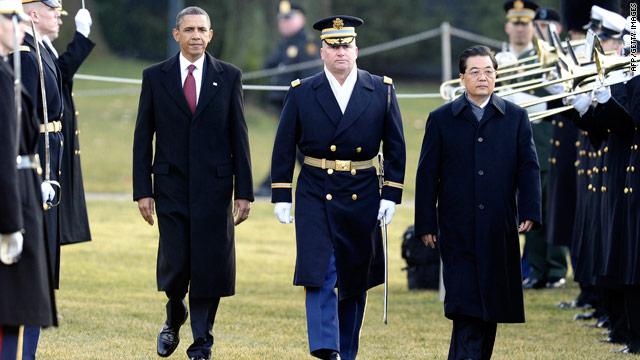
Of course U.S. rebalancing is about China
By Justin Logan, Special to CNN
Editor’s note: Justin
Logan is director of foreign policy studies at the Cato Institute, and
the author of a forthcoming policy study, “China, America, and the Pivot to Asia.”
Brad Glosserman has penned a provocative article
arguing that America’s rebalancing toward the Asia-Pacific isn’t about
“fear of China.” Fear may be too strong a word, but the argument is
still wrong. Of course it’s about China.
It’s telling that Glosserman’s article itself is all about China. For
instance, he mentions Washington’s support for freedom of navigation in
the South China Sea. But the recent friction hasn’t been between
Vietnam and the Philippines. It isn’t Malaysia claiming almost all the territorial waters there. No, the current panic in the South China Sea is all about China.Glosserman concedes that the “lead story” at the ASEAN Regional Forum this year was the tension between Washington and Beijing, and that this tension was so powerful that it prevented ASEAN members from issuing a joint declaration.
But the problem is deeper than that: with Washington insistent on putting itself at the center of Asian disputes involving China, smaller, weaker ASEAN members are playing China and Washington off one another, trying to see which side values their support more. As the Thai scholar Thitinan Pongsudhirak remarked, ASEAN members “don’t want China and the United States to be in complete agreement. These tensions and rivalries give them leverage and bargaining power.” Similarly, Japan and South Korea have just allowed historical squabbles to scuttle closer defense cooperation. The reason they can let this happen, as Stephen Walt observes, is because Uncle Sucker is willing to help foot the bill for those countries’ defense.
The only paragraph in the article that offers possible alternative explanations for why we’re “rebalancing” consists of abstractions. The real reasons, according to Glosserman, are Washington’s desire to “counter a narrative of U.S. decline in the Asia-Pacific” and its “determination to play its historical regional role.” But what might produce this narrative of U.S. decline, and who would care about such a narrative, absent China? And what is our historical regional role?
Our historical role has been to infantilize our partners so we get greater control over East Asian politics. And as John Mearsheimer points out, our track record is quite clear: we don’t tolerate peer competitors. We didn’t tolerate the Soviet Union, we didn’t tolerate a Third Force in Europe, and there’s little indication that we want to tolerate China.
The usual rejoinder here is that we aren’t containing China because we’re trading with it. It’s true that we’re trading, but our military policy is clearly designed to contain China. Consider: if China were much more powerful than America, and Chinese leaders were reveling in their self-styled role as the preeminent Western Hemisphere power, cultivating allies and naval basing agreements in Cuba and Venezuela, and arming what we viewed as Hawaiian separatists (Taiwan), even if they traded with us, we’d call that containment. I and others have worried about the contradictions of our “congagement” policy, but interdependence doesn’t mean there isn’t security competition happening, as the Great War showed clearly.
Despite protests to the contrary, we aren’t upgrading our relationships with Vietnam and the Philippines to deal with drug trafficking or piracy. We aren’t spending hundreds of billions on the platforms to back up our new “operational concept” AirSea Battle in order to better perform humanitarian relief. No, as the Chief of Naval Operations and Chief of Staff of the Air Force recently argued, AirSea Battle is needed because:
“Some rising powers that appear to be seeking regional hegemony hope to employ access denial strategies to isolate other regional actors from American military intervention, enabling them to more effectively intimidate and coerce neighboring states.”
Arguing that our Asia policy isn’t primarily about China is like arguing our Middle East policy isn’t primarily about oil and Israel. The danger of repeating over and over that our policy isn’t about China is that we may come to believe it ourselves, overlooking the important problems with the policy itself.
No comments:
Post a Comment